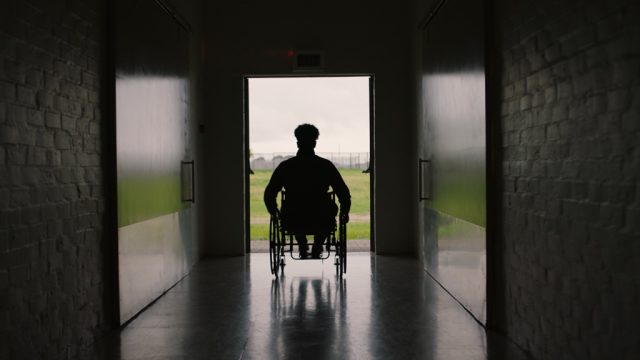5 Inspiring Fitbit Success Stories

Right when you think your life is too difficult, your work is too stressful, and you feel like a good workout is simply too far out of reach, we’d like to direct your eyes to a man named Sandile, who will offer you a healthy, much-needed reality check.
Four years ago, on a motorcycle joyride with his friends, Sandile took a bad corner. He woke up two weeks later, in the hospital—paralyzed from the chest down. He spent some time in a depressive funk, before realizing that something had to change. Step one: Focus on his health. “However, going back to the gym wasn’t as easy as I thought,” he says. “A lot of the machines at the gym—I can’t use them, as a wheelchair user.”
Fast forward to today, and Sandile’s in excellent shape, and he’s officially embarked on step two: Running a program at a special needs school to help the students there play sports and get a good fitness regimen going. “The moment you actually try, you actually do,” Sandile says, “it changes the game.”
Sandile’s story is just one of the moving videos found in Fitbit’s wildly effective new campaign. Each video focuses on a real-life, actual Fitbit user, and tells the story of how the fitness tracker changed his or her life for the better. There’s Sandile, the motorcyclist; Kiyoshi, the saxophonist; Rachel, the devoted parent; Linnea, the fitness junkie; and Kai, the surfer. Here are their stories.
1
Sandile
As you see, Sandile made use of the interval training mechanism on the Fitbit to motivate himself.
2
Kiyoshi
Kiyoshi suffers major stress and anxiety. His pulse climbs; his breathing goes through the roof. And it’s not a minor impediment: Kiyoshi makes his living as a jazz saxophonist. His breath is as integral to his career as a runner’s feet are to hers. So whenever Kiyoshi feels the walls closing in, he makes use of the guided breathing sessions on his Fitbit to keep calm and carry on.
“I feel grateful that I’m able to continue performing,” Kiyoshi says. “I hope my performance provides healing to the hearts of my listeners.” Take it from me—it does. (Seriously, you should check out this video for, if nothing else, the smooth-as-butter sax solo at the end.)
3
Rachel
Rachel and her husband spent 13 years trying to get pregnant. Then, she was diagnosed with type-2 diabetes. “The attitude was: This is you forever,” she says.
So suddenly, it all clicked, and she realized that she needed to lose weight. By making use of the calorie-burn, food-logging, and step-counting features on her Fitbit, Rachel was able to lose 79 pounds—and keep it off. “There’s not an option to give up. There’s not an option to go back,” she says. “You need to find your reason.” Rachel’s reason? After those 13 years, she’s a proud mother now.
4
Linnea
All at once, Linnea’s life went off the rails. Her grandfather was diagnosed with M.S. Work was, well, work (which is to say: Demanding.) And she got pregnant. “My body and mind were pretty broken,” she says.
But when Linnea saw “the rush” competitors get from completing the Swedish Classics, she realized: That was her cure. By utilizing the Fitbit’s community features—a type of social network about fitness enthusiasts—Linnea was able to motivate herself to reach her fitness goals and get her life in parity. “It helps me keep balance between myself, my family, and my work,” she says.
5
Kai
Kai has a tougher job than you do: He’s an organ donor coordinator. In other words, he’s the guy who talks to suddenly-bereaved people and convinces them to part with their loved ones’, um, parts. When there’s a traumatic accident, Kai has less than an hour to arrive on-scene. Due to the hectic schedule of the job, Kai was losing a ton of sleep. So he made use of the sleep-tracking data function on his Fitbit to get his cycle back in order.
“To be able to have a good night’s rest allows to be my best, so I can be there at the hospital, to talk to families, and to ultimately get people transplanted,” he says. “It’s crazy to think that something so small could have such a big impact.”
For more advice on living your best life, follow us on Facebook now!